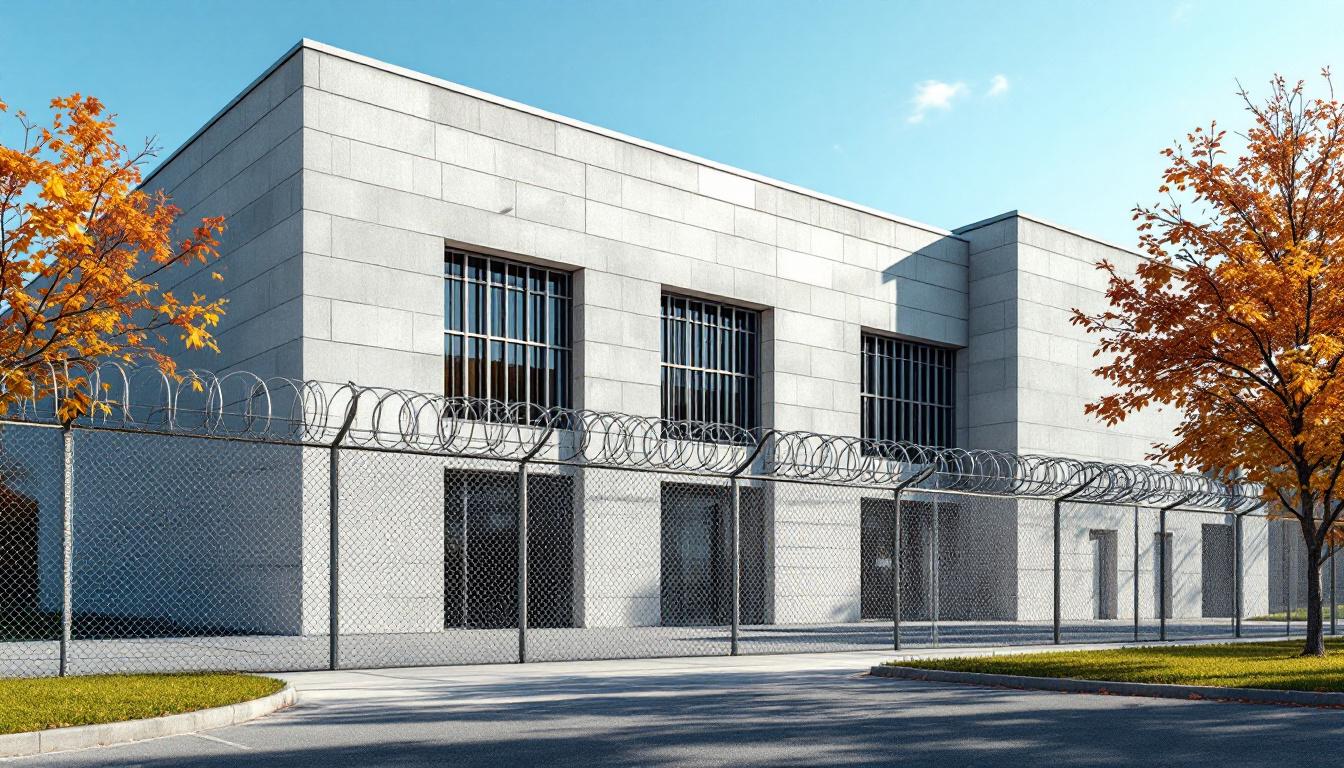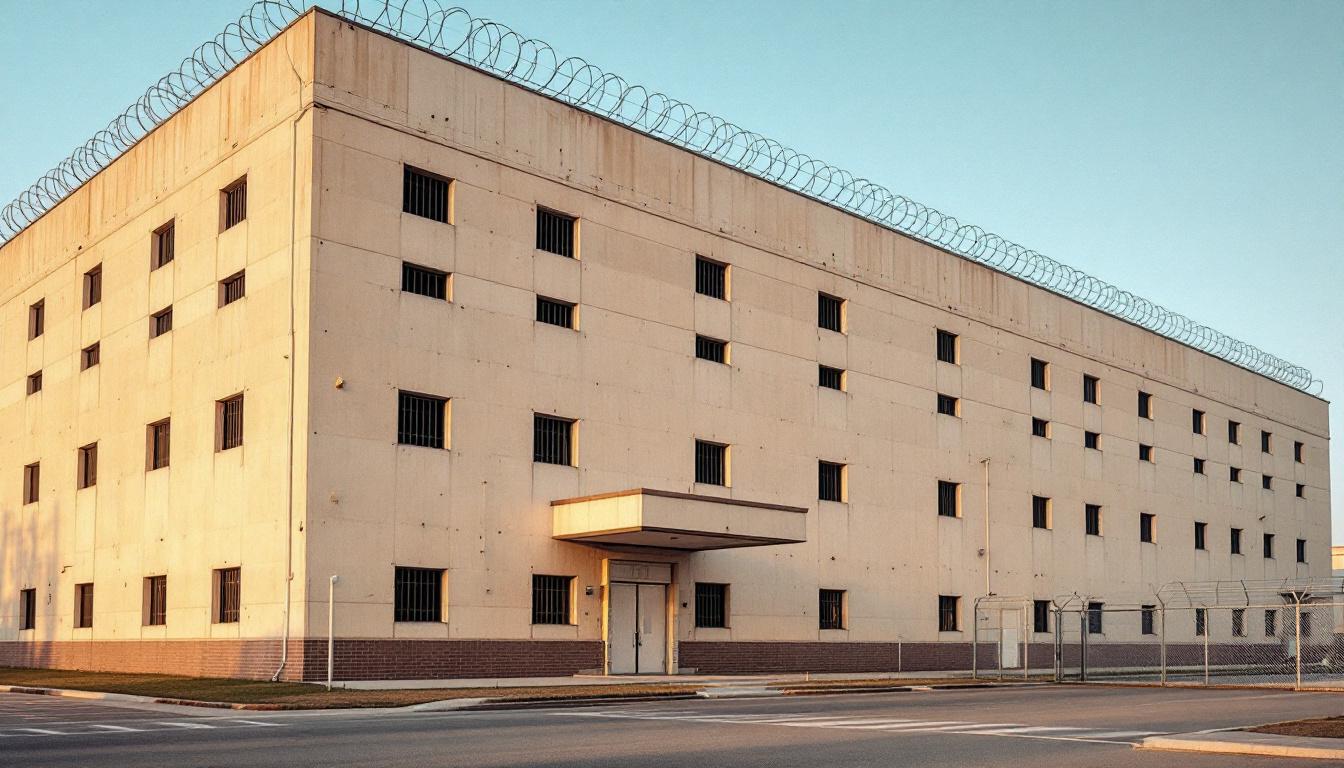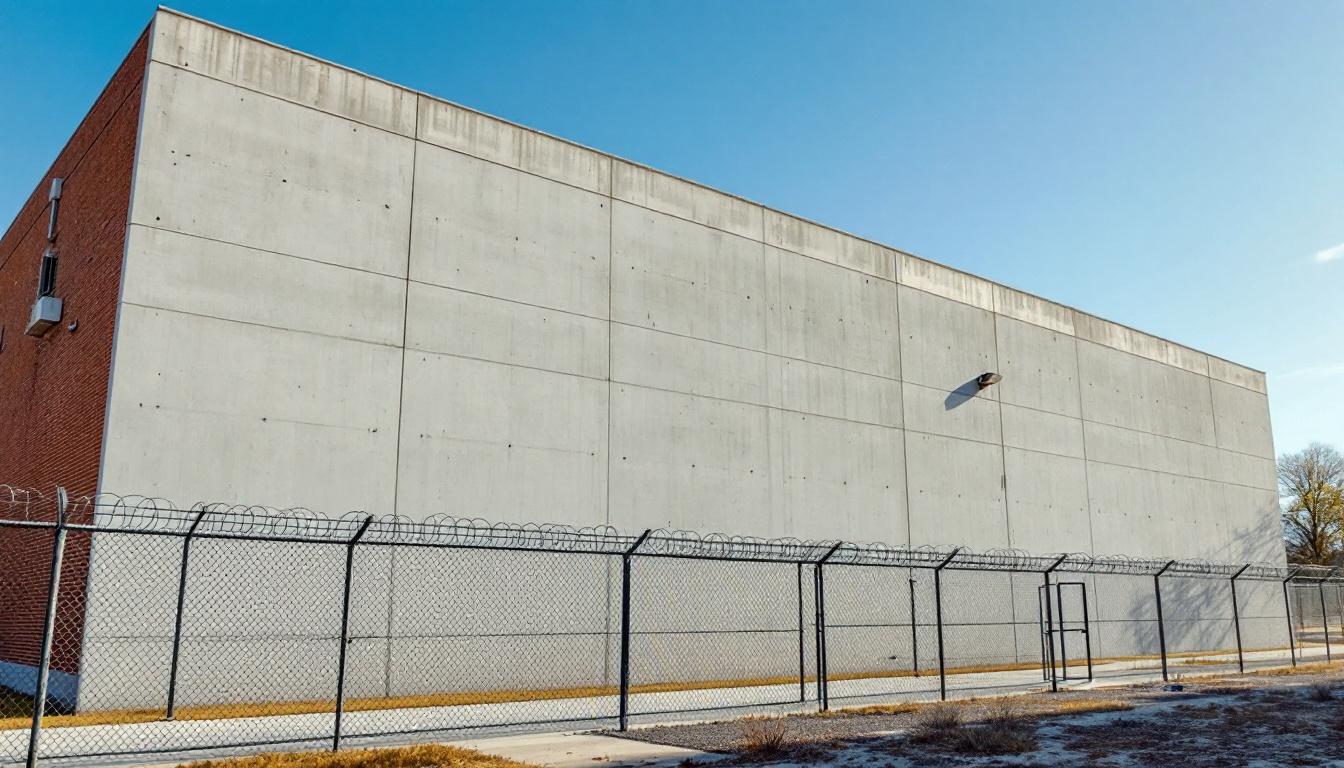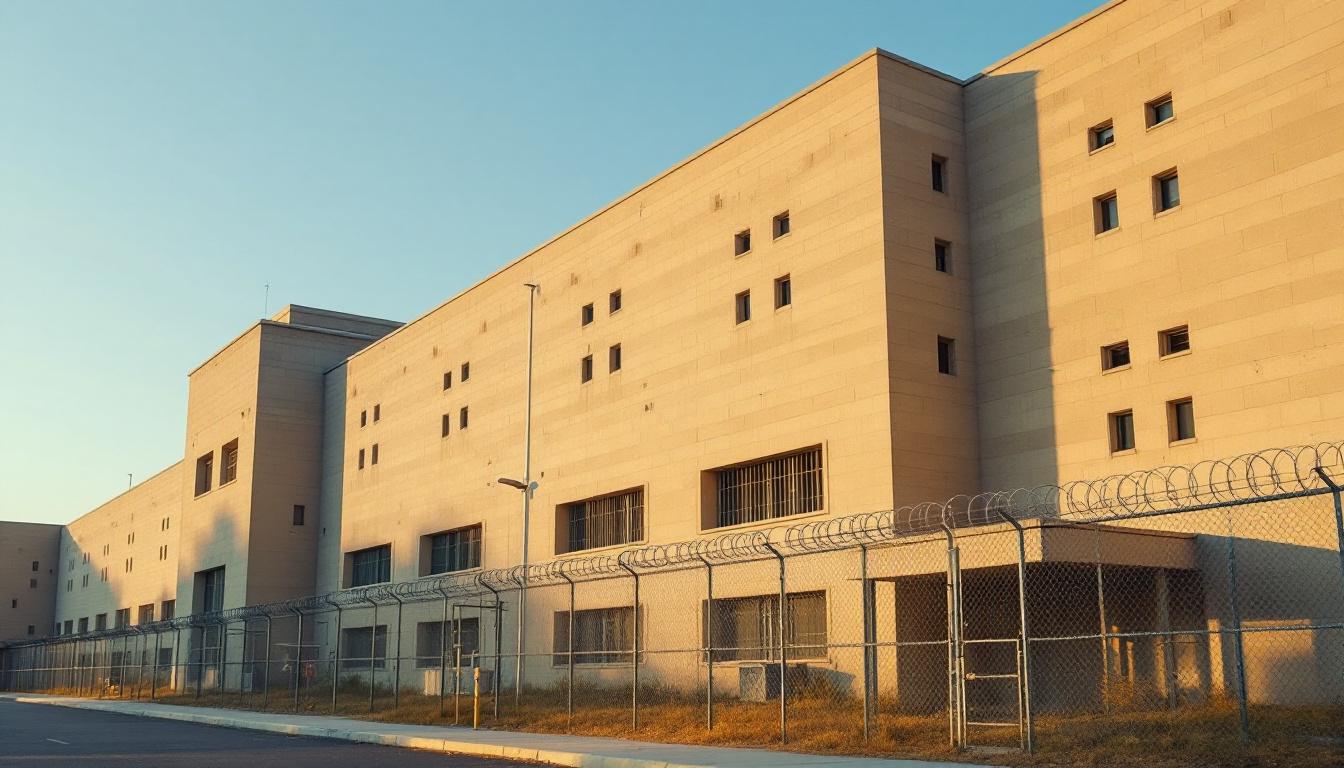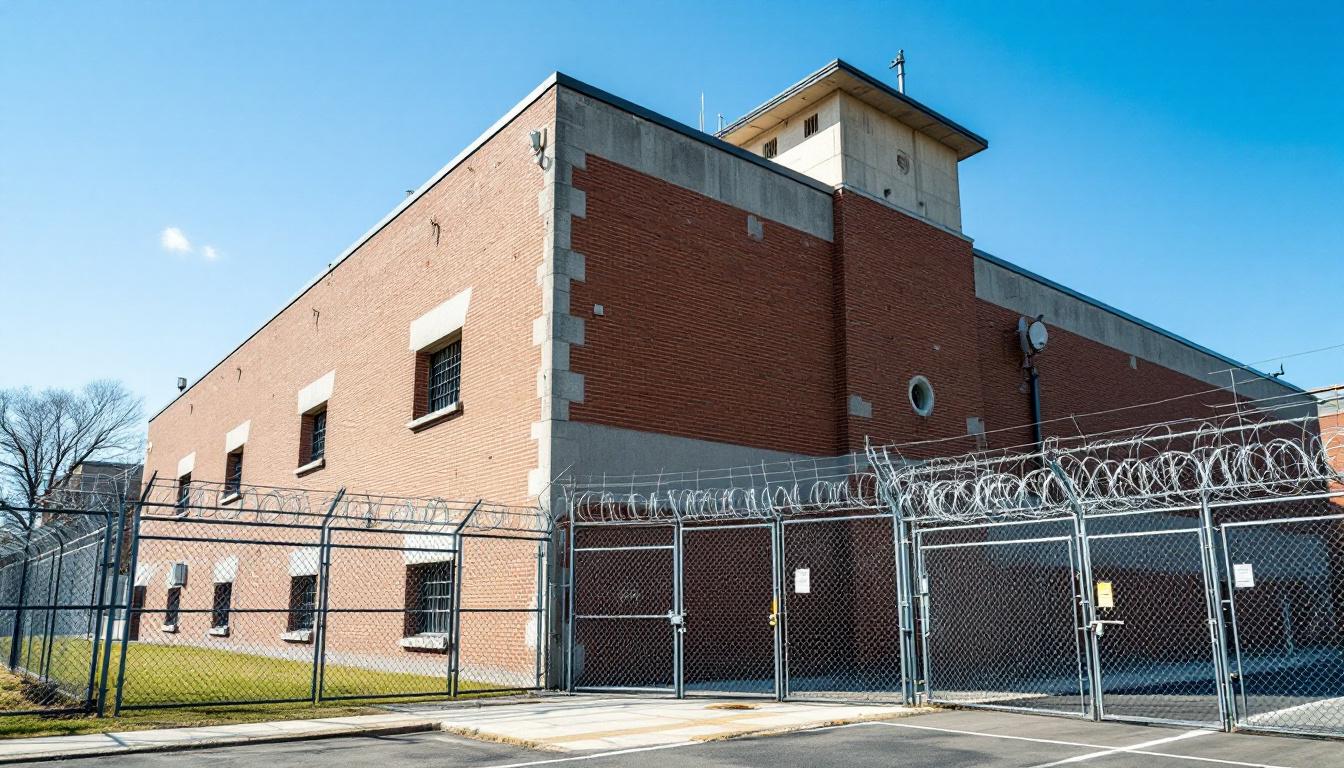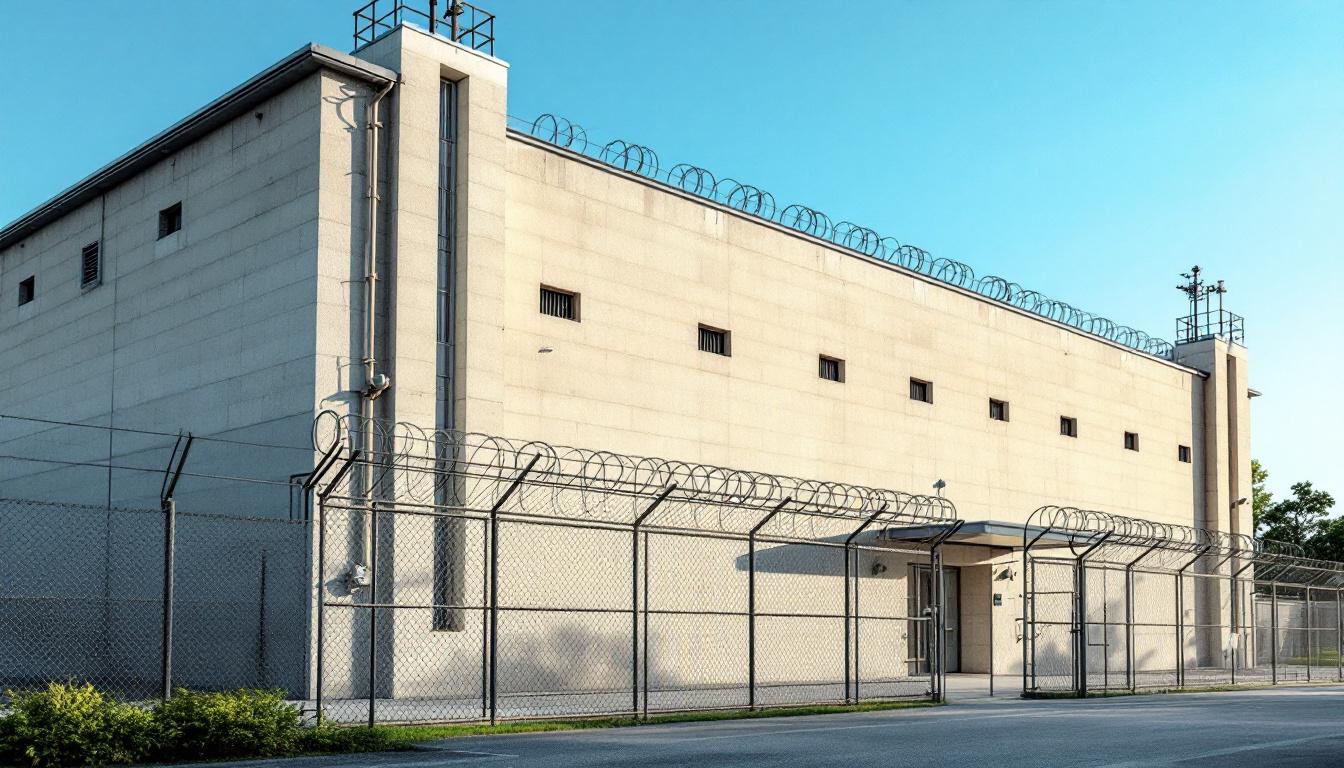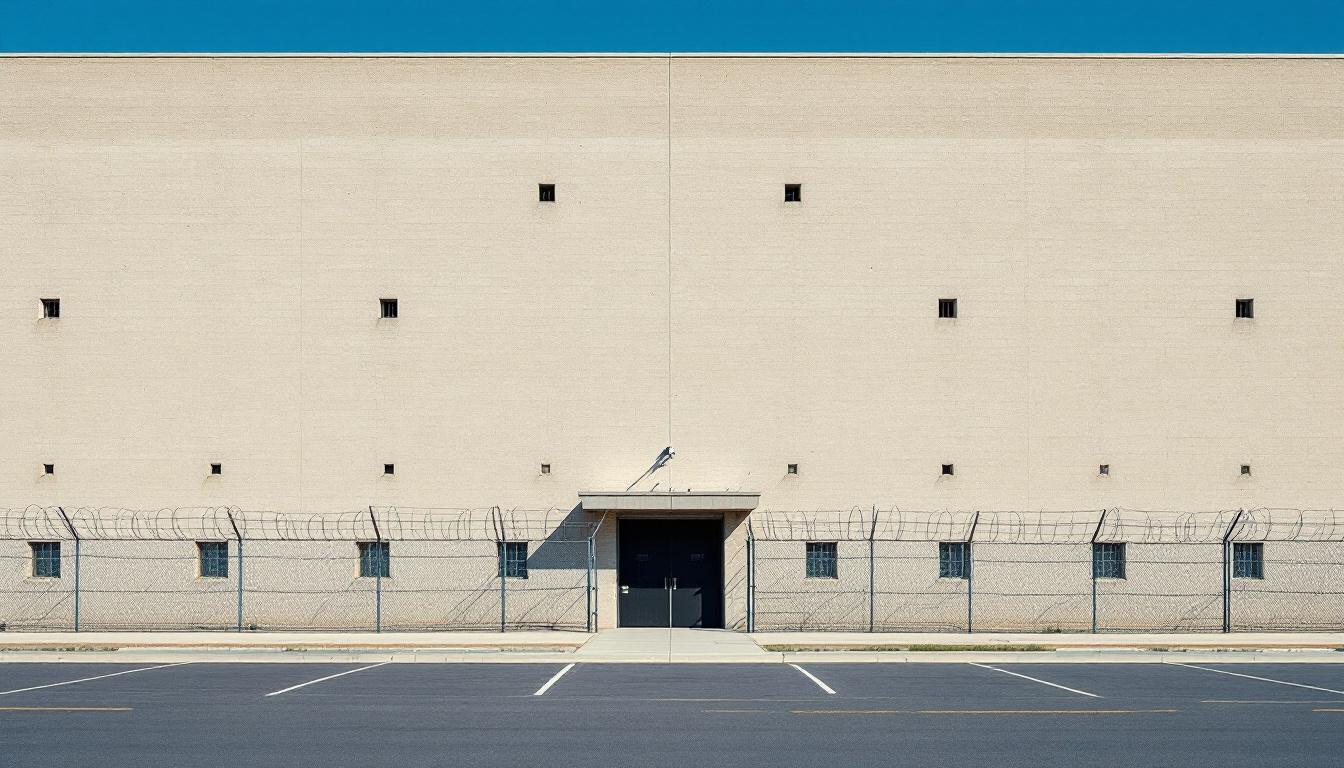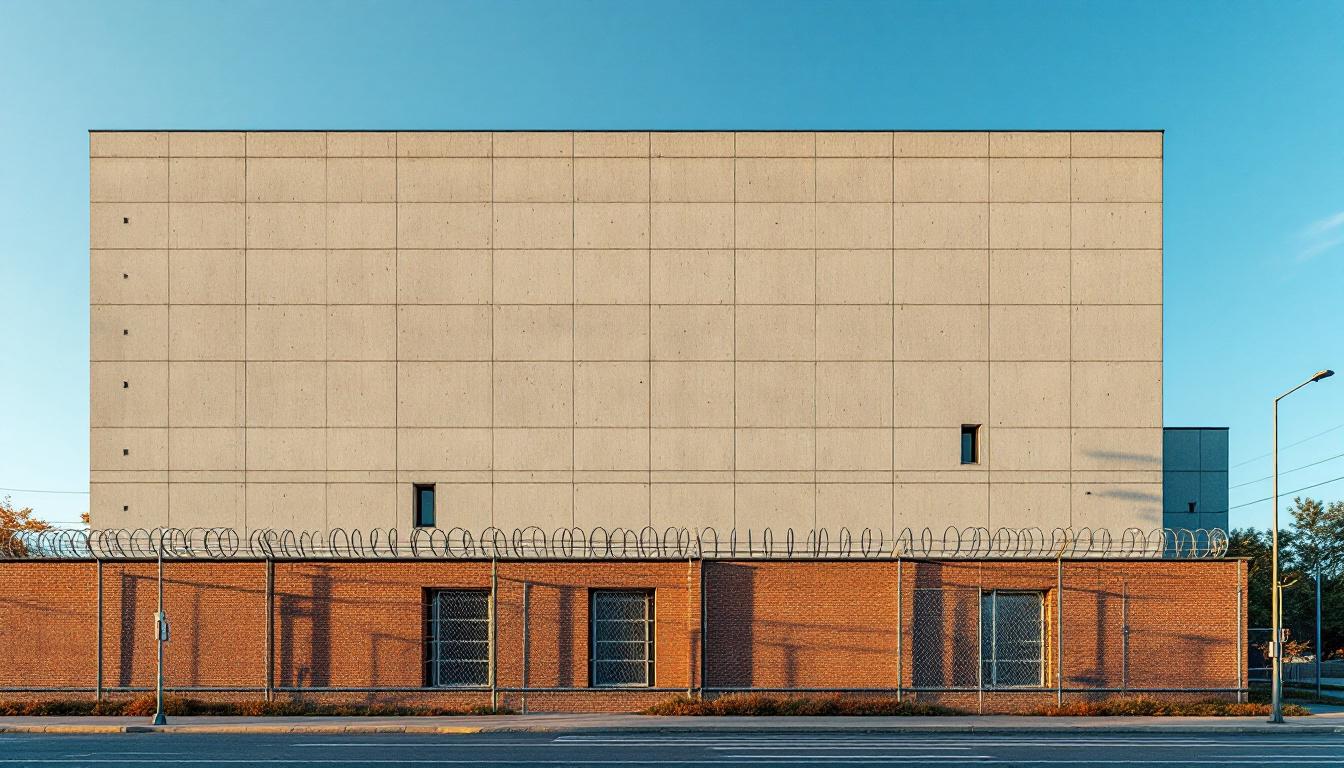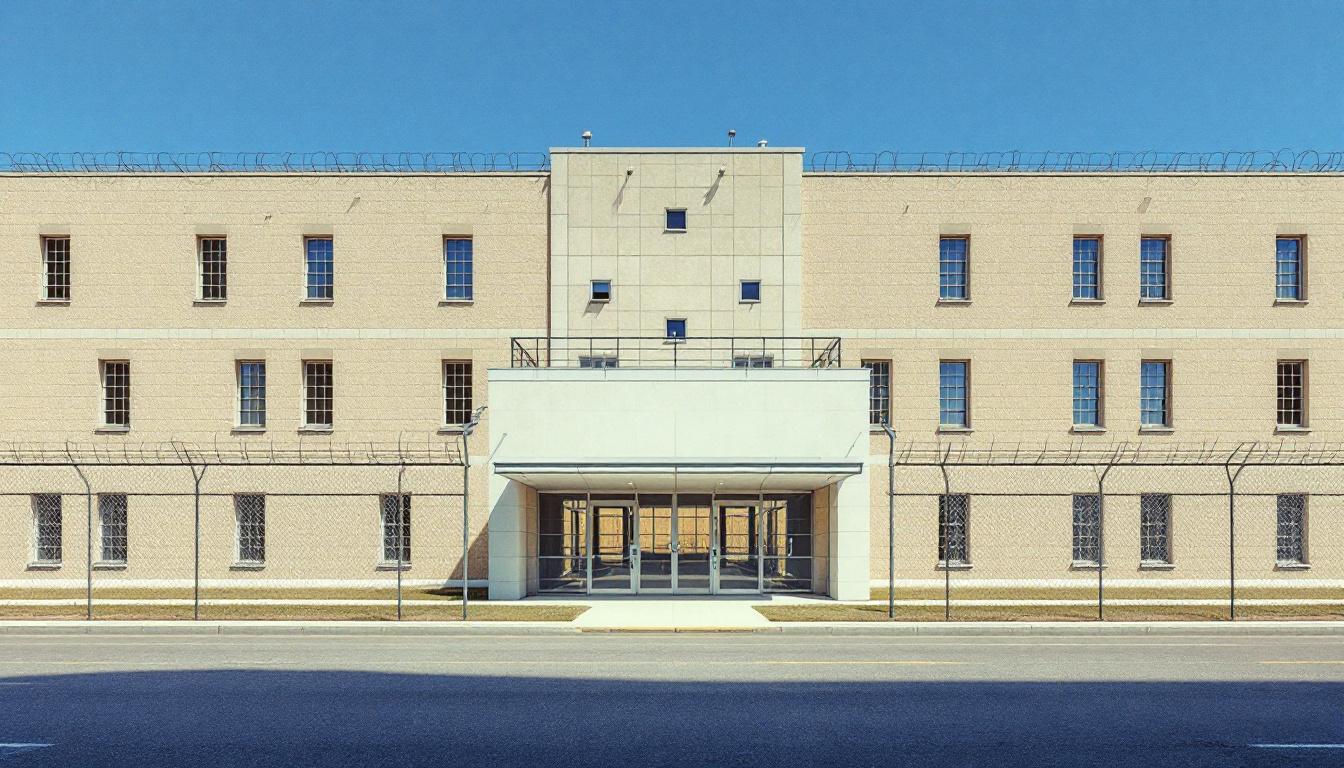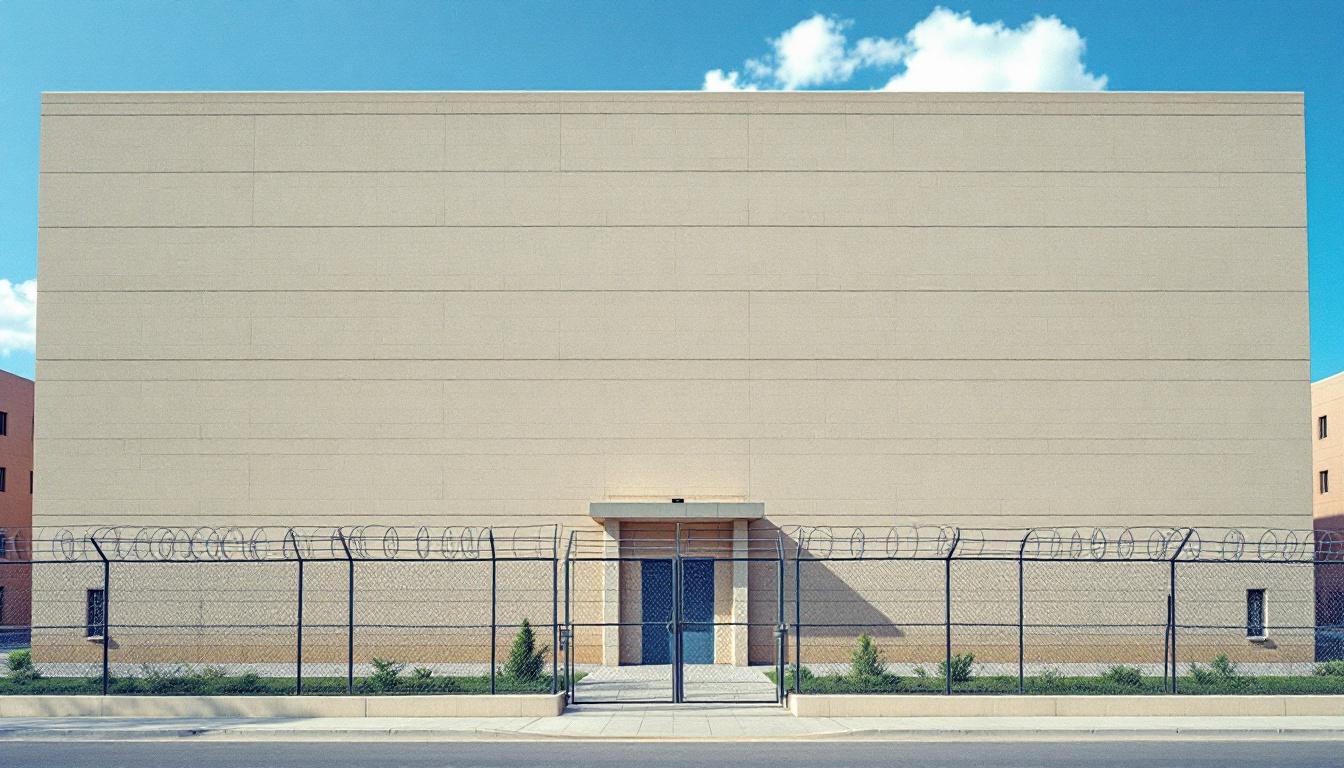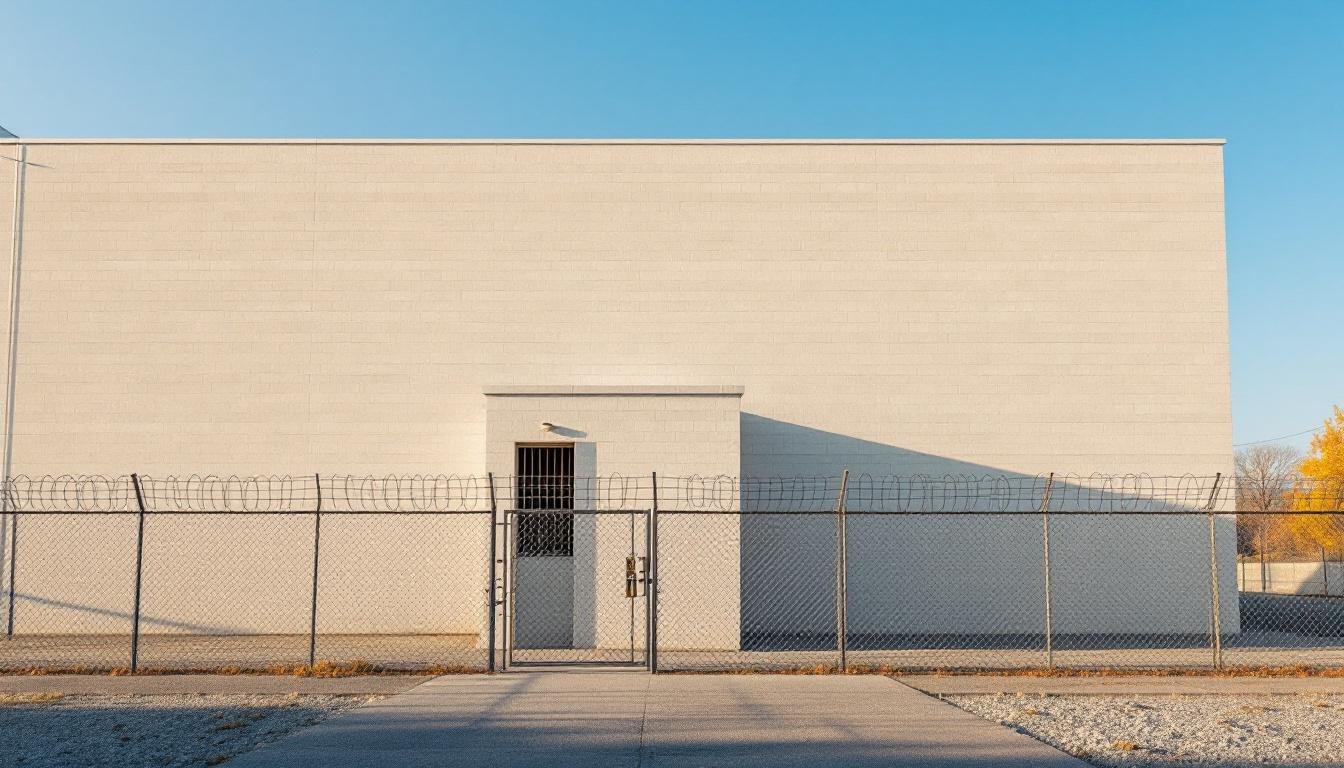
Quick Navigation
How to contact an inmate at Miami-Dade County Pre-Trial Detention Center
This comprehensive guide will walk you through how to connect with an inmate at Miami-Dade County Pre-Trial Detention Center. Follow the steps below to find an inmate and send letters and photos:
- Search for the inmate using our search tool below
- Create your account or log in to Penmate
- Write your message (up to 6,000 characters)
- Send instantly - inmates receive printed copies daily
Find an Inmate
Search for an inmate to start communicating today
Tip: You can search by first name, last name, or inmate ID number
To contact a person at Miami-Dade County Pre-Trial Detention Center start by searching for the person on the official facility website. Perform a search by following these steps:
- Step 1: Enter their first name and last name into the search form and click "Search"
- Step 2: Locate their inmate record
- Step 3: Write down their Inmate ID and any housing information provided
Important! Be sure to enter the person's full name. Nicknames should not be used.
How to Send Messages to Inmates

You can use your phone or computer to send emails, letters, and photos to an inmate. Messages are sent electronically to inmate tablets or kiosks at the facility. If you would like to send a message, start by searching for an inmate at Miami-Dade County Pre-Trial Detention Center.
Sending Photos and Postcards

A great way to send love and support to a loved one at Miami-Dade County Pre-Trial Detention Center is to send photos and postcards. It only takes a few minutes to send photos from your phone and it makes a huge difference. You can also mail postcards with words of support and inspiration, or design your own postcard for special moments like birthdays and holidays.
Important! Be sure not to send any explicit photos or they may not be approved by the facility. You can also use a photo printing app like Penmate to make sure your photos are printed at the correct size (4x6 or 3x5) and are mailed according to the rules and regulations of Miami-Dade County Pre-Trial Detention Center.
Frequently asked questions about Miami-Dade County Pre-Trial Detention Center
-
How long does it take to deliver a message?
If you're sending an email message your letter is usually delivered within 24-48 hours. For messages sent via mail you should expect delivery within 3-7 days. All messages will need be approved by Miami-Dade County Pre-Trial Detention Center.
-
How much does it cost to send a message to Miami-Dade County Pre-Trial Detention Center?
You can send a message free using your phone or mail a message via USPS for the price of a $0.60 stamp and envelope. You can also purchase credits or e-stamps from services starting at $1.99.
-
What services can I use to contact an inmate at Miami-Dade County Pre-Trial Detention Center?
Penmate
You can use Penmate to send letters and photos to an inmate from your phone. It's an easy way to stay in touch during your loved one's incarceration. Use the inmate locator to find an inmate's location and contact information, then you can send messages within a few minutes.
Securus messaging
Securus may be another option for communicating with an inmate at Miami-Dade County Pre-Trial Detention Center. You can create a friends and family account and purchase credits to send messages. All messages will be reviewed and must be approved by the facility.
JPay
Some county jails and state prisons may support sending messages with JPay. You must register an account with the system, find your loved one, and purchase stamps to send messages. For some locations you can also attach photos.
Smart Jail Mail
You may also check if Smart Jail Mail is available at Miami-Dade County Pre-Trial Detention Center. Smart Jail Mail is operated by Smart Communications and has contracted with some state and county jails. After purchasing credits, your messages and photos are sent to the facility, printed out, and then handed out to your loved one.
-
What is the mailing address of Miami-Dade County Pre-Trial Detention Center?
Mailing address:
Miami-Dade County Pre-Trial Detention Center
1321 NW 13th St
Miami, FL 33125
Phone: (786) 263-4100Business hours:
- Monday: Open 24 hours
- Tuesday: Open 24 hours
- Wednesday: Open 24 hours
- Thursday: Open 24 hours
- Friday: Open 24 hours
- Saturday: Open 24 hours
- Sunday: Open 24 hours
-
What are the visiting hours at Miami-Dade County Pre-Trial Detention Center?
Visiting hours at Miami-Dade County Pre-Trial Detention Center vary by housing unit and security level. Generally, visits are scheduled on weekends and holidays, with some facilities offering weekday visits. Contact the facility directly at (786) 263-4100 or check their website for the current visiting schedule. Visits typically last 30-60 minutes and must be scheduled in advance.
-
What items are prohibited when sending mail to Miami-Dade County Pre-Trial Detention Center?
Prohibited items typically include: cash, personal checks, stamps, stickers, glitter, glue, tape, staples, paperclips, polaroid photos, musical or blank greeting cards, hardcover books, magazines with staples, and any items containing metal or electronics. Only send letters on plain white paper with blue or black ink. Photos must be printed on regular photo paper (no Polaroids). Always check with Miami-Dade County Pre-Trial Detention Center for their specific mail policies.
-
How do I send money to an inmate at Miami-Dade County Pre-Trial Detention Center?
You can send money to an inmate at Miami-Dade County Pre-Trial Detention Center through several methods: 1) Online using JPay, Access Corrections, or the facility's approved vendor, 2) Money orders mailed directly to the facility with the inmate's name and ID number, 3) Kiosks located in the facility lobby, or 4) Over the phone using a credit or debit card. Fees vary by method, typically ranging from $2.95 to $11.95 per transaction.
-
Can I schedule a video visit with an inmate at Miami-Dade County Pre-Trial Detention Center?
Many facilities now offer video visitation as an alternative to in-person visits. At Miami-Dade County Pre-Trial Detention Center, video visits may be available through services like Penmate, Securus Video Connect, GTL, or ICSolutions. Video visits typically cost $10-20 for 20-30 minutes and must be scheduled in advance. You'll need a computer or smartphone with a camera and reliable internet connection. Contact the facility for their specific video visitation policies and approved vendors.
-
What identification do I need to visit an inmate at Miami-Dade County Pre-Trial Detention Center?
All visitors must present valid government-issued photo identification such as a driver's license, state ID, passport, or military ID. Minors must be accompanied by a parent or legal guardian who can provide the minor's birth certificate. Some facilities require visitors to be on the inmate's approved visitation list, which may require a background check. Contact Miami-Dade County Pre-Trial Detention Center for specific ID requirements and visitor approval procedures.
-
How can I find out an inmate's release date?
To find an inmate's release date at Miami-Dade County Pre-Trial Detention Center, you can: 1) Use the online inmate search tool if available, 2) Call the facility's records department, 3) Contact the inmate's case manager or counselor, or 4) Have the inmate provide this information during a call or visit. For privacy reasons, some facilities only release this information to immediate family members.
Facility Overview
Contact Information
Miami-Dade County Pre-Trial Detention Center1321 NW 13th St
Miami, FL 33125
Phone: (786) 263-4100
Official Website
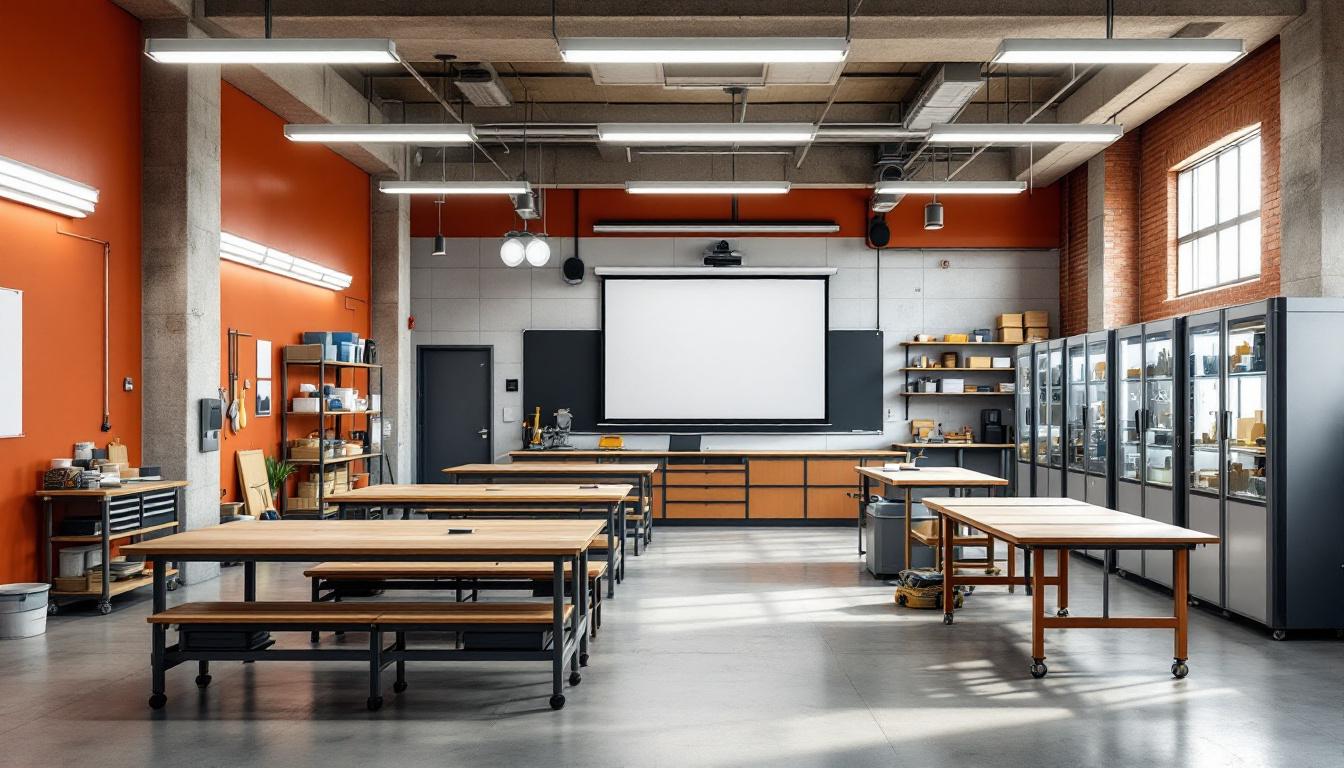
About Miami-Dade County Pre-Trial Detention Center
Educational programs, vocational training, and reentry support services form the foundation of what Miamai Dade, FL offers to individuals within the state's correctional system. Located in Miami, this FL correctional facility operates as an integral component of Florida's broader rehabilitation network, emphasizing skill development and community preparation for those preparing to return to South Florida's diverse neighborhoods.
The facility typically maintains various programs designed to address the specific needs of individuals services while supporting successful community reintegration. Miami's unique cultural landscape influences many of the facility's approaches, with programming that may include literacy education, job readiness training, and substance abuse counseling. These correctional facility initiatives generally focus on providing practical tools that align with employment opportunities available throughout the greater Miami area, from hospitality and construction to service industries that drive the regional economy.
As part of Florida's correctional infrastructure, the facility serves communities throughout Miami-Dade County by working toward rehabilitation goals that benefit both participants and the broader South Florida region. The facility's role extends beyond housing to encompass preparation for productive community membership, with programs that may include family reunification support and connections to local social services. This comprehensive approach to corrections reflects Miami's commitment to addressing public safety through evidence-based practices that emphasize personal development and community responsibility.
Programs & Services
A comprehensive range of opportunities empowers individuals to build foundational skills across multiple areas of personal development. The facility typically emphasizes a holistic approach to rehabilitation, recognizing that meaningful change often requires addressing educational gaps, developing practical skills, and confronting underlying challenges. This multi-faceted programming structure allows participants to engage in various areas simultaneously, creating pathways for sustained growth and successful community reintegration.
Educational opportunities form a cornerstone of the facility's offerings, with education programs designed to help individuals complete their high school equivalency or advance their academic skills. Tutoring programs may provide additional support for those who need extra assistance with coursework or specific subjects. Moreover, vocational training in areas such as plumbing offers hands-on experience that can translate directly into employment opportunities upon release. These skill-building initiatives often focus on trades that are in demand within the local job market.
Support services and therapeutic opportunities address the broader needs that individuals may face during their incarceration. Work release programs typically allow eligible participants to maintain employment in the community while serving their sentence, helping to preserve family connections and financial stability. Substance abuse treatment provides crucial support for those struggling with addiction, offering both group and individual counseling sessions. These therapeutic interventions often incorporate evidence-based approaches designed to help individuals develop coping strategies and address the root causes of their involvement in the justice system.
Daily Life & Visitation
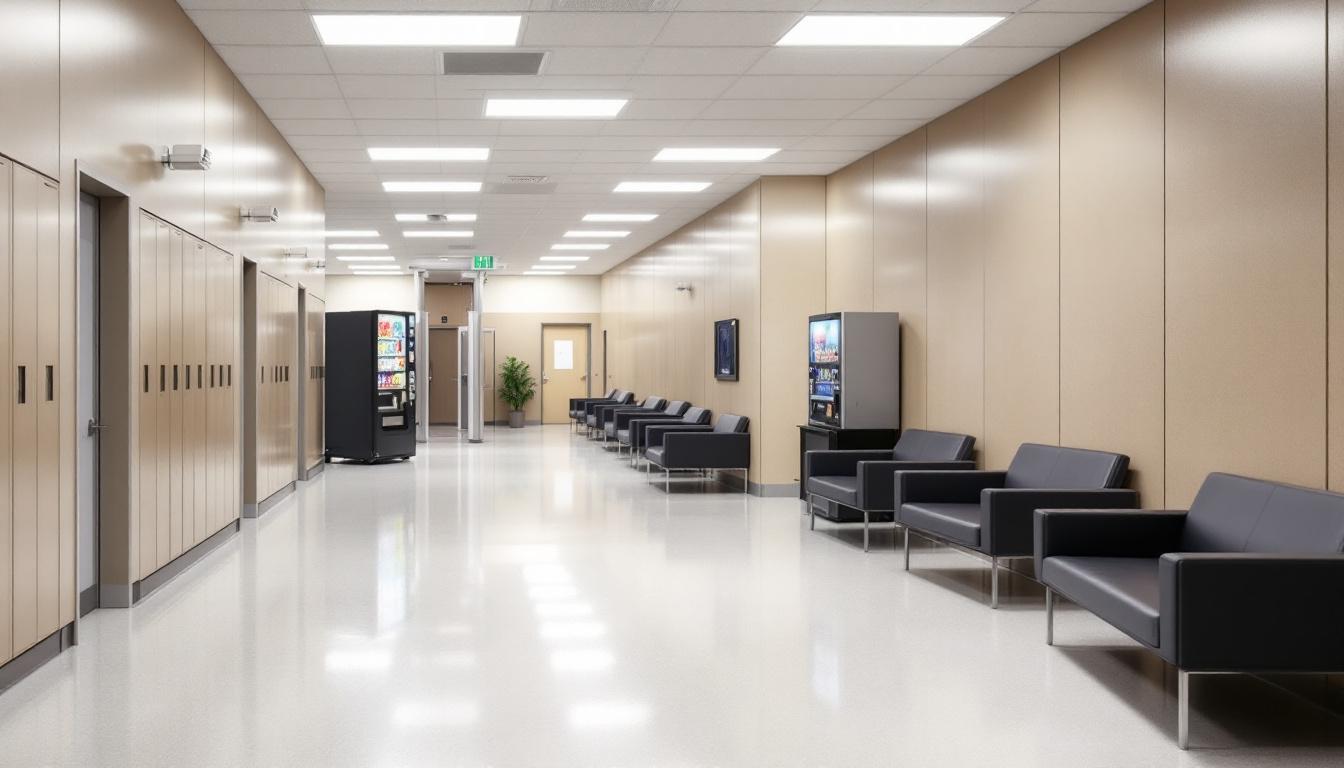
The sound of count announcements now punctuates the rhythm of daily life, as individuals adjust to highly structured routines that typically begin before dawn. Morning activities regularly include facility counts, meal service, and assignment to work details or programming. Throughout the day, individuals move between housing units, common areas, and designated program spaces according to established schedules that aim to maintain order while providing opportunities for personal development.
Living accommodations generally consist of shared cells or dormitory-style housing units, where individuals store personal belongings within strict guidelines about allowable items. The facility typically provides basic necessities, though individuals may purchase additional items through the commissary system using funds from their accounts. Meals are usually served in designated dining areas at scheduled times, with menu planning that meets basic nutritional requirements. Moreover, recreational opportunities often include access to outdoor yards, television viewing areas, and library services during designated periods.
Structured programming schedules may offer educational classes, vocational training, and counseling services designed to support rehabilitation goals. Whereas daily routines remain highly regimented, visitation policies typically allow for regular contact with family members through scheduled visits and monitored phone calls. Work assignments within the facility often include kitchen duties, maintenance tasks, and administrative support roles that provide individuals with structure and may offer modest compensation. These various elements combine to create an environment where individuals navigate the challenges of incarceration while potentially accessing resources for personal growth and maintaining connections with their support systems.
Ready to Connect?
Start communicating with your loved one today
Search for an Inmate
